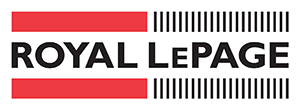
What Buyers and Owners Re-Financing Mortgages Should Know
Whether you are a first-time buyer or a more experienced one, you should know that there are many facets to the home-buying process. Finding the right real estate agent and lawyer to help you; finding the right home in your price-range; arranging financing; and working through the legal and financial aspects of the transaction itself, all the way up to closing.
For most buyers, servicing your mortgage may require a significant portion of your financial resources. For this reason, it is important to have a good grasp of the factors involved with mortgage shopping for your new home transaction
Basic Things to Consider
Whether it’s for your new home purchase or refinancing your existing home, there are many issues that you must reflect on, when deciding between financial institutions and private lenders.
These include:
* The type of mortgage (closed, fully open, or partially open)
* The interest rate being offered, and is it fixed or variable
* The term of the mortgage
* The mortgage’s amortization period (which is the time it would take to pay off your mortgage based on a certain payment amount for a certain number of years)
* Whether the mortgage can be transferred to a new property you purchase without any penalty; and
* The cost of paying off the mortgage early (i.e. paying the mortgage off before the end of the term)
Term vs. Amortization
The mortgage term is the period of time that as borrower you are committed to a specific lender under the mortgage provisions. Customarily, the term will be between one and five years.
In contrast, the mortgage amortization period is the length of time it will take you as borrower to pay off the mortgage entirely, calculated using the entire amount you borrowed, applying a fixed interest rate, and based upon you only making the minimum required payments.
Pre-Payment Penalties
Another factor is penalties: As the borrower, you will very likely be subject to a penalty for paying off the mortgage earlier than at the end of your original term (unless the mortgage is fully open). It is usually based on the greater of: 1) a sum equivalent to three months’ interest on the balance being paid out before maturity; or 2) the “interest rate differential”.
The interest rate differential is calculated on the difference between the interest rate that you are paying for your existing mortgage vs. the then-current rate being charged by your mortgage lender for this type of mortgage product at the time you wish to make either a partial pre-payment or else discharge the mortgage completely.
Ideally, your mortgage will include a provision allowing for some pre-payment that does not incur a penalty; this will be non-cumulative i.e. “use it or lose it”. The mortgage may also be assumable or portable, which gives you the most flexibility.
Renewal or Renegotiation
Finally, another key consideration relates to the nature of the terms and conditions that you may be offered by the lender when you renew your mortgage, or when you re-negotiate it during its current terms (for example, if after some period of living in the home you need to increase the principal amount borrowed.
You should re-evaluate your needs and financial capacities before talking to your mortgage lender. And remember: Mortgage renewal is only an option; you are never obliged to remain with the same lender after the initial mortgage term ends. You can always shop around for a better rate or terms with a different lender.
If you require a referral to a lender, please feel free to contact me and I will be pleased to refer you to financial institutions.
Copyright: The law firm of Martin K. I. Rumack.



